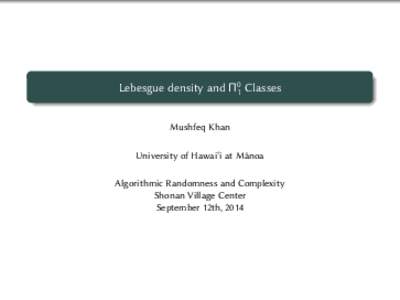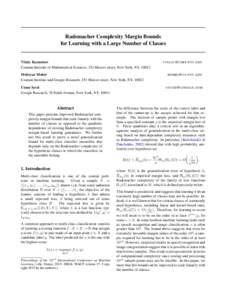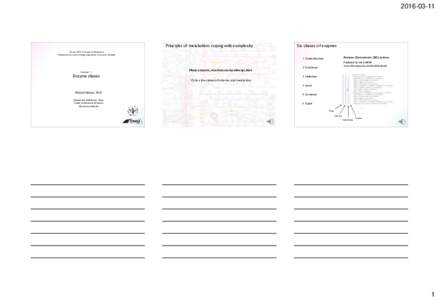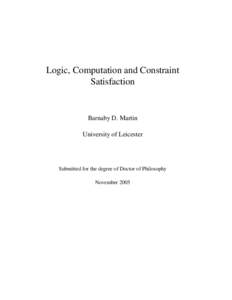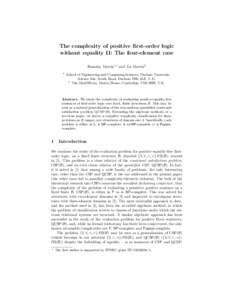<--- Back to Details
| First Page | Document Content | |
|---|---|---|
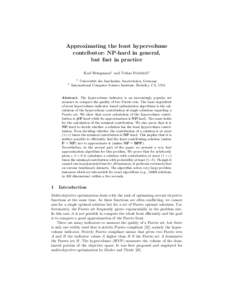 Date: 2016-01-03 06:44:56Computational complexity theory Theory of computation Complexity classes Approximation algorithms Computational hardness assumptions Polynomial-time approximation scheme Time complexity NC Reduction Exponential time hypothesis NP-hardness NP |
Add to Reading List |
 Approximating the least hypervolume contributor: NP-hard in general, but fast in practice Karl Bringmann1 and Tobias Friedrich2 1
Approximating the least hypervolume contributor: NP-hard in general, but fast in practice Karl Bringmann1 and Tobias Friedrich2 1